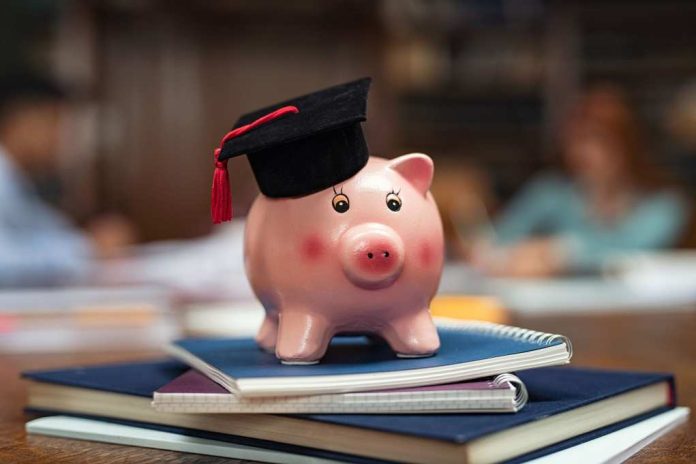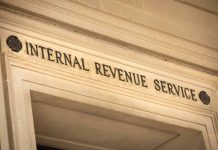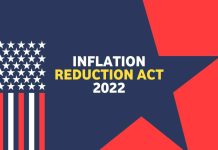
Can credit a credit repair company remove student loans? Can credit repair in general help with student loan debt? This is a topic more and more people are looking to learn about. After all, more and more people are struggling to pay back their federal loans – and student loan lenders aren’t offering much help. Why would they, after all?
Millions of Americans deal with student loans. In fact, Americans have racked up so much student debt that as of March 2021, the amount of student loan debt was over $1.6 trillion! However, even though there is so much debt. People don’t realize that there are a variety of different types of student loans available. Not only that, student loans can impact their credit score. It is important that you have a better understanding on:
- Student Loans
- Your Credit Score
- How Student Loans Impact Your Credit Score
- How You Can Repair Your Credit Score & Remove Studen Loan Debt
In this article, we’ll explain exactly how to go about removing student loan default from credit report history. You’ll also learn whether or not a credit repair company can help remove student loans from your record. We’ve got a lot to cover, but we want to start with some basic information on student loans in general – along with some basic information on your credit score. Let’s dive in.
The Different Types Of Student Loans
When reviewing ways to finance the cost of education people turn to student loans as a way to handle this expense. Getting a higher education isn’t cheap. In fact, the average yearly cost of college is $35,720! That’s just for one year so if you go to college for 4 years, you already know that you will have a lot of debt to deal with. There are two types of student loans that students can choose from:
- Federal Loans
- Private Student Loans
Federal Loans
This is the most common type of loan option for students since the terms can be much more flexible than private student loans. There are a variety of different federal student loan options that a student can choose from. There are direct:
- Subsidized loans
- Unsubsidized loans
- PLUS loans
- Consolidation loans
Direct Subsidized Loans
Direct subsidized student loans are a great option for undergraduate students in financial need. Since this loan is given to those in financial need, not everyone will be able to qualify for this option. The amount that a student can borrow will depend on the school they attend. Schools are the ones that determine how much a student can get.
A benefit of these loans is that there are special rules around interest rates. The United States Department of Education (DOE) will pay interest on these loans on behalf of the student during at least one of the following conditions:
- The student is in school at least half-time
- During a period where loan payments are postponed (this is known as deferment)
- During the first 6 months that a student leaves school (this is known as a grace period)
Direct Unsubsidized Loans
These student loans are available to both undergraduate students and graduate students. Unlike direct subsidized loans, there is no financial need requirement in order to be eligible and students will be responsible for interest. The amount that a student can borrow will depend on the school they attend. Schools are the ones that determine how much a student can get.
Direct PLUS Loans
Direct Plus loans are also known as parent PLUS loans and grad PLUS loans depending on the borrower. This student loan option can benefit graduate students, professional students, and even the parents of students! Your credit score will play a part in eligibility for these types of loans so it is important to keep that in mind. The amount that a student (or parent) can borrow depends on the cost of attendance (minus any extra financial assistance that the student has received).
Direct Consolidation Loans
Generally, students will find that they need more than one federal student loan in order to handle the costs of education. If that’s the case, then they can benefit from a federal direct consolidation loan. These loans give students the chance to combine multiple loans into one big loan. Basically, if a student has multiple loan payments a month, they can combine these loans into one bigger loan so they only have to worry about one loan payment! This means that students can be better organized when it comes to their debts. Students that choose to consolidate their loans also have the opportunity to benefit from extra assistance opportunities like Public Service Loan Forgiveness (PSLF).
Private Student Loans
While it’s recommended that students choose to finance their education with federal student loans, other students choose to get a personal loans on their own instead. These loans are offered by banks, credit unions, and other lenders (instead of the government). Private student loans have different eligibility criteria. Terms of the loan will vary by lender and information of the applicant.
What is a Credit Score?
Your credit score is an important part of life and your financial health. Your credit score is a number typically from 300 to 850. This score is used by lenders as a way to better understand how you handle credit. It is calculated based on information found on your credit report. Your report has information about your credit file like payment history, credit accounts, student loans, etc. Credit bureaus are the ones that do this calculation in order to determine your score. There are three main credit bureaus which are Equifax, Experian, and Transunion. These bureaus use scoring models in order to determine how items on your credit report will affect your credit score.
There are two main scoring models. There is the VantageScore model and the FICO scoring model. However, the FICO scoring model is way more popular. In fact, the FICO scoring model is used by 90% of top lenders. You can check your credit score for free any time by:
- Using third-party apps like Credit Karma
- Checking with your financial institution like Discover
- Reviewing your score when looking at your credit history
What Factors Affect Your Credit Score?
When looking at the FICO scoring model, there are 5 main factors that will affect your credit score. These factors include:
- Payment History
- Credit Utilization
- Age of Credit
- Hard Inquiries
- Types of Credit
Payment History
Payment history is at the top of the list when it comes to factors that affect your credit score. In fact, your payment history accounts for 35% of your score! Payment history would include late payments, collection accounts, defaulted student loans, etc.
Credit Utilization
Your credit utilization looks at the amount of credit you’re using compared to your total credit limit. This number is referred to as your credit utilization ratio. For example, if you have a total credit limit of $1,000 but are currently using $850 then your credit utilization ratio would be 85%. This factor accounts for 30% of your credit score.
Age of Credit
The age of your credit file accounts for 15% of your score. Your credit age is important because it can show lenders how you handle credit both for older accounts and newer accounts. Your credit age will include information on your credit history like the age of your oldest accounts, the age of your newest accounts, the average age of your accounts, etc.
Hard Inquiries
When you apply to get a new line of credit, you will need to submit a hard inquiry. Hard inquiries (also known as hard pulls) allow lenders to get an indepth look at your credit file when you provide written permission. Hard inquiries account for 10% of your credit score.
Types of Credit
There are two main types of credit which are either installment loans or revolving credit. Just like hard inquiries, the types of credit you have account for 10% of your credit score. Having a diverse credit file can show lenders that you know how to handle more than one form of credit.
What You Need to Know About Student Loans and Your Credit
While your credit score can play a role in determining whether or not you qualify for student loans, there is more you should know. Your student loans can have an effect on your credit score too! From the time that you open your student loan accounts, to how you handle repaying your debt, your student loans can impact your credit in many different ways (for both the better and the worse).
What is Student Loan Default?
Student loan default happens when a student isn’t able to properly keep up with their student loan payments. The terms for how they should handle their loan repayment is explained in their loan agreement (known as a promissory note). The guidelines around late payments will depend on the type of student loan you have:
- Federal Student Loans: Most of these loans become defaulted student loans once payments are around 9 months (roughly 270 days) overdue. However, depending on the type of student loan you have, you may default immediately if you miss a payment.
- Private Student Loans: These student loan default terms will vary depending on the lender. However, a general rule of thumb is that your student loans will default after three missed payments. Since it varies, it is important to confirm with your lender.
Can A Credit Repair Company Remove Student Loans Debt?
Think back to the factors that we said affect your credit score. Payment history is the most important factor when it comes to what can impact your score. When you are late on payments and your student loan defaults, you will see that mark on your credit score. People often look for ways to remove this negative information from their credit report. One way that people may try to achieve this is with a credit repair company.
Credit repair companies are organizations that handle the dispute process on your behalf. They would be the ones to get a copy of your credit report, review it for any inaccurate information, and submit a dispute to the credit bureaus. However, if the information on your credit report is accurate, you shouldn’t have much hope when it comes to a credit repair company removing this item from your credit report. Instead, you would wait for the late payments to fall off your credit report naturally which takes up to 7 years.
Frequently Asked Questions On Student Loan Credit Repair
We’ve addressed the main question you came here with today can credit repair help with student loans? More specifically, can a credit repair company remove student loans from your credit report altogether? And now that you know the answers to these two questions, you know just about all there is to know about student loan credit repair.
Understanding how student loans can affect your credit score can be confusing. And you still may not feel super confident in your next steps for student loan credit repair! Many people have had questions when learning about this topic that you may have too. So, let’s take a look at some of the most frequently asked questions we’ve seen on this topic.
What’s the Difference Between Your Credit Score and Credit Report?
Your credit score is based on information found on your report. It’s easy to get these terms confused but just remember that your credit report has information on it that is used by a credit bureau to calculate your credit score.
Can Credit Repair Help With Student Loan Debt?
Sadly, if your student loans are accurate and verifiable, you will not be able to use credit repair services like a credit repair company to get these items removed from your credit report. That means they will fall off your credit report naturally after up to 7 years. However, if the item in question is inaccurate, you can submit a dispute and thanks to the Fair Credit Reporting Act (FCRA) credit bureaus must ensure that the item is inaccurate. They will need to investigate and if found to be invalid it will be removed from your credit report along with any negative impact it had on your score.
What is the Most Common Type of Student Loan?
When looking at federal student loans, direct subsidized and direct unsubsidized loans are the most popular student loan options. However, besides a federal student loan you can look at a private student loan as well.
What is a Loan Servicer?
When reviewing your student loan options you may come across the term loan servicer. A loan servicer is a company that the government will assign to handling services like the billing of your federal student loan. These companies will do this on behalf of the government for no additional cost to the student.
What About Refinancing Student Loans?
Another question we see a lot is in regards to student loan refinancing. Can you get better interest rates on your student debt? This is something you’ll want to discuss with your loan provider – as the answer is not one size fits all.
Can A Credit Repair Company Remove Student Loan Debt? Wrapping Things Up
So, can credit repair help with student loans? Can a credit repair company remove student loans altogether? These are just two of the many questions we’ve answered throughout this complete guide to student loan credit repair. We hope you’ve gained valuable insights into how you can solve your student loan debt woes once and for all.
There are a variety of different student loan options available to help you finance the cost of education. However, it is important to know that if you don’t properly handle your student loans, you can see a negative impact on your credit score. Some people try to handle these negative marks through credit repair services. Credit repair services like help from a credit repair company can handle the dispute process on your behalf to get negative items removed from your credit report. However, unless the items are inaccurate or unverifiable then negative marks like a late payment on your student loan, can stay on your credit report for up to 7 years.
References:
https://www.nerdwallet.com/article/loans/student-loans/student-loan-debt
https://educationdata.org/average-cost-of-college
https://studentaid.gov/understand-aid/types/loans/subsidized-unsubsidized
https://studentaid.gov/understand-aid/types/loans/plus
https://studentaid.gov/manage-loans/consolidation
https://www.salliemae.com/student-loans/get-ready-to-borrow/understanding-private-student-loans/
https://www.myfico.com/credit-education/credit-scores
https://www.myfico.com/credit-education/what-is-a-fico-score
https://www.capitalone.com/learn-grow/money-management/what-affects-your-credit-score/
https://www.nerdwallet.com/article/loans/student-loans/student-loan-default
https://bettercreditblog.org/remove-negative-student-loan-info-from-your-credit-report/
https://www.collegeavestudentloans.com/resources/federal-vs-private-loans/




























